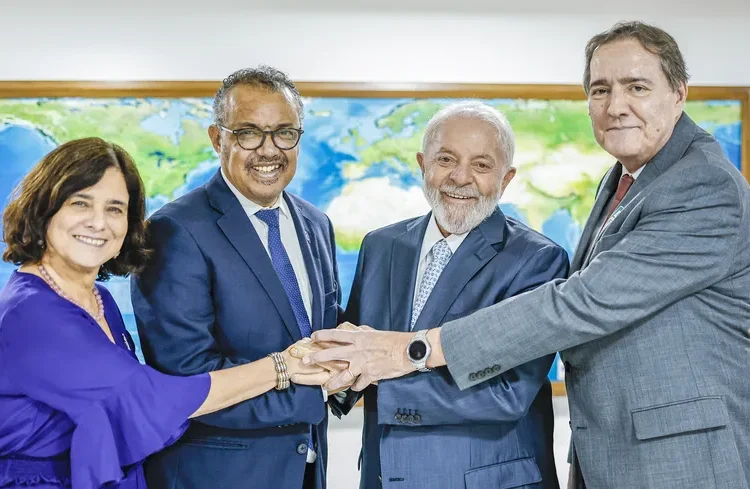On Wednesday, the federal government launched a public policy to try to eliminate, as a public health problem, or reduce the incidence of 14 diseases that mainly affect populations in situations of social vulnerability, such as malaria, Chagas disease, HIV and tuberculosis. The Healthy Brazil program was announced in partnership with the World Health Organization (WHO).
According to the government, Brazil is the first country in the world to launch a policy to combat so-called socially determined diseases (see the full list in the second part of this news story). Official figures show that they caused a total of over 59,000 deaths in the country between 2017 and 2021.
On Wednesday, at the launching event, the WHO was represented by Director-General Tedros Adhanom, while Health Minister Nísia Trindade spoke on behalf of the government. The initiative will also bring together 13 other ministries, such as Science, Technology and Innovation; Human Rights and Citizenship; Indigenous Peoples; and Cities.
President Luiz Inácio Lula da Silva (Workers’ Party) and Adhanom met face-to-face last Monday (5) at the Planalto Palace, and the WHO director-general assured Brazil of his support in the elimination and control of diseases, as well as offered a partnership in the supply of Brazilian vaccines against dengue.
The program
The Healthy Brazil initiative came about after its launching, in April 2023, of the Interministerial Committee for the Elimination of Tuberculosis and Other Socially Determined Diseases (CIEDDS), which identified 175 priority cities for having a high incidence of at least two socially determined diseases.
The ministries involved in the new program will act on fronts such as focusing on tackling hunger and poverty; expanding human rights and social protection in priority territories; encouraging innovation in diagnosis and treatment; and expanding infrastructure and basic and environmental sanitation actions.
The initiative aims to eliminate Chagas disease, malaria, trachoma, filariasis, schistosomiasis, onchocerciasis and geohelminthiasis. In addition, the expectation is to end vertical transmission (during pregnancy) of HIV, syphilis, hepatitis B, Chagas disease and HTLV.
Actions are also planned to achieve the WHO targets for certain diseases. These are: reducing the incidence of tuberculosis to less than 10 cases per 100,000 inhabitants; having 95% of people living with HIV diagnosed, of this 95% on treatment and of those on treatment 95% with a controlled viral load; diagnosing 90% of people, treating 80% of those diagnosed, reducing new infections by 90% and reducing mortality from viral hepatitis by 65%; and reducing the prevalence of leprosy to less than one case per 10,000 inhabitants.




